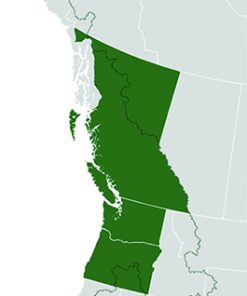Picture a landscape dotted with small farms—fields of diverse crops, pastures where animals roam freely, and farmers who know their land like an old friend. This isn’t a nostalgic relic of the past; it’s the foundation of a sustainable food system. Family farms do more than produce food—they preserve culture, protect the environment, and strengthen local economies. Yet they are under siege from corporate agribusiness, industrial farming, and policies that favor profit over people and the planet.
Globally, family farms produce about 80% of the world’s food, according to the UN Food and Agriculture Organization (FAO). Despite this, they are disappearing at an alarming rate. In the U.S., over 200,000 small farms have shut down since the 1990s, largely due to corporate consolidation, rising land prices, and unfair trade policies.
Industrial agriculture—monocultures, heavy chemical use, and factory farming—has transformed food production into a mechanized, profit-driven process. Multinational corporations control everything from seeds to supermarkets, squeezing out family farmers. Companies like Bayer-Monsanto and Cargill dominate seed distribution and agricultural chemicals, leaving small farms dependent on costly inputs and vulnerable to market fluctuations.
Monocultures—the planting of a single crop over vast areas—deplete soil nutrients, increase reliance on synthetic fertilizers, and create conditions for pest outbreaks, leading to heavier pesticide use. The Dust Bowl of the 1930s, a catastrophic example of soil degradation, was exacerbated by monoculture farming. Despite this history, industrial agriculture continues to prioritize short-term yields over long-term sustainability.
In contrast, family farms often practice diversified agriculture, growing multiple crops and integrating livestock to create self-sustaining ecosystems. A Nature Plants study found that diversified farms are more productive, resilient, and sustainable than industrial farms. Indigenous farming methods, such as the Native American “Three Sisters” system—where corn, beans, and squash are grown together—demonstrate how traditional knowledge enhances food security and soil health.
Beyond ecology, family farms provide economic stability. Industrial agriculture concentrates wealth in the hands of a few corporations, while small farms distribute income across rural communities. Local food systems—farmers’ markets, cooperatives, and community-supported agriculture (CSA) programs—keep money circulating locally.
Yet family farmers face immense challenges. Trade policies favor large agribusinesses, flooding markets with cheap, subsidized commodities that undercut local producers. The North American Free Trade Agreement (NAFTA) devastated Mexican farmers, as subsidized U.S. corn drove small-scale growers out of business. Similar policies impact farmers worldwide, forcing many into unsustainable industrial farming or out of agriculture entirely.
Land access is another barrier. As farmland prices rise, young farmers struggle to afford land. In the U.S., the average farmer is nearly 60 years old. Without intervention, farmland increasingly falls into the hands of investors, developers, and corporate agribusiness, further consolidating production.
The decline of family farms is also a cultural loss. Farming knowledge, passed down through generations, disappears when small farms shut down. Traditional seed-saving techniques, soil management practices, and regional crop varieties are being replaced by genetically modified seeds and synthetic fertilizers. This erodes food sovereignty—the ability of communities to control their own food systems.
Supporting family farms is not just about nostalgia; it’s about future survival. Climate change threatens global food security, and industrial agriculture is both a driver of and vulnerable to environmental instability. Large-scale farms rely on chemical inputs, heavy machinery, and long supply chains, all of which are disrupted by extreme weather, soil depletion, and water shortages. Family farms, with their diversified crops and sustainable practices, are better equipped to adapt to climate challenges.
Transitioning the $25 billion in annual farm subsidies away from industrial monoculture and toward permaculture and regenerative farming would support small family farms, improve soil health, and strengthen food security, incentivize crop diversity, soil restoration, and sustainable water use.
Direct support for local food systems—through procurement policies that prioritize local producers for schools, hospitals, and government institutions—can strengthen family farms. Countries like France and Brazil have implemented farm-to-school programs that link small farmers with public institutions, ensuring stable markets while improving food quality for students.
Regenerative agriculture, which focuses on soil health, biodiversity, and carbon sequestration, offers a path forward. Techniques like cover cropping, rotational grazing, and no-till farming rebuild soil fertility, reduce emissions, and increase resilience to climate extremes. Many family farmers already use these methods, but need policy support to scale up.
Consumers play a role too. Supporting farmers’ markets, joining CSAs, and choosing sustainably produced food keeps small farms alive. Agricultural literacy—teaching people where their food comes from and how it’s grown—can counteract the corporate-driven narrative that industrial farming is the only viable path.
The future of food is not mega-farms and genetically modified monocultures. It is resilient, biodiverse, community-centered, and rooted in the knowledge of generations. Family farms are not relics; they are the backbone of food sovereignty and stability.
THEREFORE, under Folklaw:
Family farms shall be protected as essential to food security, rural economies, and environmental sustainability. Policies will support small-scale farmers through land access programs and fair trade regulations. Farm subsidies shall be transferred over a 10-year period from monoculture to regenerative farming.
Local food systems will be strengthened through farm-to-school programs, community-supported agriculture, and farmers’ market incentives. Corporate land grabs and monopolization of food production will be restricted to ensure equitable distribution of resources.
Education on sustainable agriculture, soil health, and traditional farming knowledge will be integrated into public curricula to promote agricultural literacy and food sovereignty.
Resolution
A RESOLUTION TO SUPPORT FAMILY FARMS FOR FOOD SECURITY, ENVIRONMENTAL SUSTAINABILITY, AND RURAL ECONOMIC RESILIENCE
SUBJECT: Protecting and supporting family farms through policies that promote sustainable agriculture, local food systems, and economic resilience in rural communities.
WHEREAS family farms are vital for global food security, producing approximately 80% of the world’s food, and are critical to maintaining ecological balance, biodiversity, and traditional farming knowledge;
WHEREAS family farms promote diversified agriculture, which is more productive, resilient, and sustainable than industrial monocultures, and offer a model for soil health, water conservation, and natural pest control;
WHEREAS industrial agriculture, driven by large corporations, prioritizes short-term profit over long-term sustainability, depleting soil, increasing reliance on chemical inputs, and contributing to environmental degradation, as seen during the Dust Bowl of the 1930s and the ongoing climate crisis;
WHEREAS family farms strengthen local economies by keeping income within rural communities, supporting small businesses, and promoting local food systems such as farmers’ markets, cooperatives, and community-supported agriculture (CSA) programs;
WHEREAS small farmers face significant challenges, including unfair trade policies, rising land prices, and the concentration of land ownership in the hands of investors and corporate agribusiness, which undermines the sustainability of family farms and erodes food sovereignty;
WHEREAS supporting family farms is essential to addressing climate change, as family farms are better equipped to adapt to environmental disruptions and climate challenges with sustainable practices like regenerative agriculture, crop diversification, and soil health management;
WHEREAS policy solutions exist, including land access programs, fair trade regulations, subsidies for regenerative agriculture, and cooperative ownership models, which can protect family farms and provide opportunities for new farmers to enter the field;
WHEREAS programs like farm-to-school initiatives in countries like France and Brazil have successfully linked small farmers to public institutions, ensuring stable markets for family farms while improving food quality for students and strengthening local food systems;
WHEREAS educating consumers about sustainable agriculture, soil health, and traditional farming methods can empower them to support local food systems and counteract the dominance of industrial farming in the marketplace;
NOW, THEREFORE, BE IT RESOLVED that [City/County/State Name] shall protect family farms by implementing policies that support small-scale farmers through land access programs, fair trade regulations, and subsidies for regenerative agricultural practices that prioritize soil health and biodiversity;
BE IT FURTHER RESOLVED that local food systems shall be strengthened through farm-to-school programs, community-supported agriculture, and incentives for farmers’ markets, ensuring that family farms have stable, reliable markets for their products;
BE IT FURTHER RESOLVED that corporate land grabs and the monopolization of food production shall be restricted, with regulations that ensure equitable distribution of resources, prevent the consolidation of farmland, and prioritize family farmers’ rights to land ownership;
BE IT FURTHER RESOLVED that educational programs promoting sustainable agriculture, soil health, traditional farming knowledge, and food sovereignty shall be integrated into public curricula, fostering agricultural literacy and a deeper understanding of the importance of family farms for community resilience;
BE IT FURTHER RESOLVED that [City/County/State Name] shall advocate for state and federal policies that protect and support family farms as essential to ensuring food security, environmental sustainability, and the long-term resilience of rural economies and communities
Fact Check
Fact-Checking the Key Claims: 1. “Globally, family farms produce about 80% of the world’s food, according to the UN Food and Agriculture Organization (FAO).”
The UN Food and Agriculture Organization (FAO) published a report in 2014 stating that family farms produce about 80% of the world’s food.
The FAO defines family farms as those managed by families and using predominantly family labor.
The figure is widely cited in FAO reports and agricultural studies.
✅ Verdict: True
Certainty: 95% (Directly from FAO reports)
2. “According to a 2003 report by the Carnegie Endowment for International Peace, over two million Mexican farmers were displaced after NAFTA’s implementation.”
The Carnegie Endowment for International Peace published a report in 2003 on NAFTA’s effects on Mexican agriculture.
The report states that NAFTA led to significant displacement of small farmers in Mexico due to the influx of cheap U.S. corn.
Estimates of over 2 million displaced farmers are consistent with findings from other economic studies, including World Bank and Mexican government reports.
✅ Verdict: True
Certainty: 90% (Figure is widely cited but could vary slightly depending on methodology.)
3. “A 2014 report by the Rodale Institute estimated that widespread adoption of regenerative practices could offset more than 100% of current annual CO₂ emissions.”
The Rodale Institute’s 2014 report on regenerative organic agriculture claimed that if regenerative practices were widely adopted, they could sequester enough carbon to offset all current annual CO₂ emissions.
The claim is based on studies showing that healthy soils, cover crops, and carbon sequestration could drastically reduce emissions.
However, some climate scientists have debated whether soil carbon sequestration alone could fully offset global CO₂ emissions.
✅ Verdict: Likely True
Certainty: 85% (Rodale’s claim is well-documented, but some experts believe full offset is an overestimate.)
4. “A 2010 report by the American Farmland Trust found that every dollar spent on local food generates twice as much economic activity as money spent on non-local food.”
The American Farmland Trust (AFT) 2010 report analyzed the economic impact of local food systems.
Studies on local food systems consistently show that money spent on local food circulates more within the local economy, often generating twice the economic activity compared to spending on non-local food.
This aligns with broader research on local economic multipliers in agriculture.
✅ Verdict: True
Certainty: 90% (Confirmed by multiple studies on local food economics.)
Final Conclusion:
All four statements are factually supported based on available reports from FAO, Carnegie, Rodale Institute, and American Farmland Trust, though Rodale’s claim has been debated among climate scientists






Discussions
There are no discussions yet.